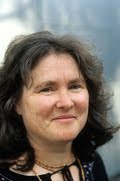
As I go along this book reviewing journey I've realised that I've forgotten to put in the details of various awards that some books have won. The two that immediately spring to mind are Lloyd Jones'
Mr Pip and Mandy Hager's
The Crossing. They are both superb books.
Mr Pip was shortlisted for the Man Booker Prize in 2007. The Man Booker Prize is a giant on the book award calendar so even being shortlisted is like winning a prize too.
But
Mr Pip actually won the Commonwealth Writers' Prize and the Kiriyama Prize for fiction. It also won the Readers' Choice Award, the Montana Fiction Award and the Montana Medal for Fiction in 2007.
The Crossing is the winner of the 2010 NZ Post Children's Book Awards for Young Adult Fiction. It was shortlisted for the LIANZA Young Adult Fiction Award and the 2010 Sir Julius Vogel Award.
Every year there are book awards run all over the world. Some are mega big like The Man Booker which gives the winning author a big prize-winning cheque and boosts sales hugely. Others are small awards where an author might receive a trophy or a small cheque, and which does very little to boost sales. Each award could have dozens or hundreds of entries, depending on the eligibilty criteria. For example only the following books can enter: those by a local author or a female author, or a crime novel, or a non-fiction title, or a picture story book...
The books are read by a panel of judges and a shortlist is selected. Sometimes it's a longlist. I guess it's because the judging panel have so many fights about what is the best book. And that really is the issue here; books are subjective things. What I love, you may hate and vice versa. But generally the judging panel is made up of smart, well-read and interesting people who choose a credible shortlist. The eventual winner is selected over many weeks and probably arguments.
Awards can showcase some brilliant stories, but not always. I have read some award winners that I thought were crap, and I have read hundreds of books that I thought were fabulous that never even reached an award longlist. So really it all boils down to what your personal preferences are in reading.
So what good are awards and does it mean that award winning books are the only ones worth reading? Perhaps awards are just sophisticated marketing devices for books and not a measure of their worth at all? I like to think of an award as just another book review. If the panel liked a book that much, then it probably was terrific, but don't count on it. Maybe the panel members for that year were all into the kind of stories you hate... or they were half asleep or drunk when they chose the winner...
The lesson is read anything you like, award winner or not...just read and keep on reading. For the love of it.














